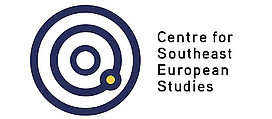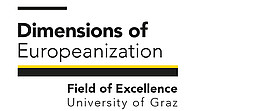Balkan Academic News
What is BAN?
Balkan Academic News was established in March 1999 by Florian Bieber as a private initiative to further academic exchange and to secure the flow of information about relevant research and opportunities for scholars, in particular from Southeastern Europe. The network includes researchers from all parts of Southeastern Europe and scholars researching the region. One of the reasons for the establishment of BAN was to provide support against the backdrop of international isolation, limited resources in academia in the region and strong nationalist and antagonistic relations in the region.
BAN goals & objectives
The goal of Balkan Academic News has been and continues to build a community of researchers in order to exchange information and to find out about mutual initiatives, such as conferences, publications and on-going research. A key function of Balkan Academic News is to “level the playing field” and to reduce the power of gate-keepers. As a non-hierarchical network, doctoral students, professors and policy makers are able to participate equally and can find out about opportunities and venues for research without relying on often restrictive sources of information. Furthermore, BAN gives voice and helps the shape academic community committed to high-quality research crossing national boundaries and provides opportunities for young researchers from the region. The national boundaries have often acted as barriers to scholarship and have excluded researchers from mainstream European and North American academia.
Our model
In 2010 Balkan Academic News was institutionalised as an activity of the Centre for Southeast European Studies at the University of Graz and the list is moderated at the Centre. This step helps to secure its long-term viability and provide it with institutional backing. As a result, it moved from a commercial provider to an educational provider. The model of Balkan Academic News can is based on a simple mailing list concept. The use of the mailing list has over the 13 years of the existence of Balkan Academic News proven to be very resilient, irrespective of changes in technology and has meant that researchers even with limited access to the internet - relevant especially in the first years of its existence - were fully able to partake in the initiative. BAN has distributed over 10,000 messages in its existence over 13 years to its more than 8,000 members, including information about research funding, scholarships, conferences and publications, as well as book reviews and notifications about new publications.
BAN principles
The success of Balkan Academic News is based on the following principles:
1. Ensuring a cooperative environment. Through the use of moderation and gathering information from a multitude of sources, the network ensured that it is not seen as biased in favouring a particular national perspective and gained respect among scholars from different communities. It strongly discourages the dissemination of materials that are clearly biased and do not serve an academic purpose and are exclusionary.
2. Openness. The key purpose of Balkan Academic News is to disseminate information freely and without impediment. By announcing calls for senior jobs and helping young scholars looking for data for their research, it seeks to balance hierarchical structures often persistent in academia and enable younger or researchers from vulnerable groups equal access.
3. Comprehensiveness. The network encourages exchange on all fields of humanities and social sciences with a relevance to Southeastern Europe and takes an inclusive approach in terms of region and disciplines. As such, it has been able to establish itself as the prime form on scholarship on and in Southeastern Europe. This required, especially during the first years of its existence the promotion of network to become the forum for the circulation and exchange of information.
For full information on calls for applications, papers, conferences, Events, deadlines, and other news regarding Southeast European academic network, please subscribe --> http://list.uni-graz.at/mailman/listinfo/balkans









